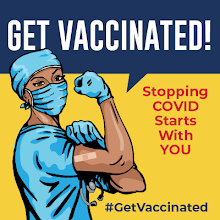78% of Americans aren't worried about COVID despite rising cases, Yahoo News/YouGov poll reveals
"COVID-19 infections are on the rise in at least 35 U.S. states and territories, but that isn’t registering with most Americans. Despite a spike in COVID cases, a total of 78% of Americans describe themselves as “not very worried” or “not worried at all” about getting the virus this summer, according to a new Yahoo News/YouGov poll.
"The survey of 1,743 U.S. adults, which was conducted from July 19 to 22, found that only 4% of respondents are “very worried,” 17% are “somewhat worried” and 2% say they already contracted the virus this summer. Nearly half of Americans (45%) say they aren’t at all concerned.
"The news that COVID cases are surging again may come as a surprise to most Americans, given that 72% say they aren't following current reports of the number of COVID infections very closely (34%) or at all (38%).
"Yahoo Life spoke to some public health experts to get their thoughts on why Americans are unfazed by the virus. Here’s what they say.
We know more about COVID. “We are much less worried or interested in COVID than we were in 2020 or 2021 or 2022, and that makes sense to me, because many things have changed over the past few years,” Emily Smith, an associate professor with the George Washington University Milken Institute School of Public Health, says. “We have more tools in our toolbox to prevent and treat COVID.”
More cases are mild. Dr. Jessica Justman, a professor of medicine and epidemiology at Columbia Mailman School of Public Health, says it’s understandable that people are less concerned. “Most people see that, now, when they get COVID or people they know get COVID, the illness is milder [than] it had been before. And this is reflected in the current COVID-related hospitalization and death rates, which are low now compared to the high peaks we saw a few years ago.”
People have COVID fatigue. Pablo Penaloza-MacMaster, associate professor of microbiology-immunology at Northwestern University, says people likely have some "behavioral fatigue" after more than four years of COVID. “It’s understandably difficult to stay on high alert about COVID-19 indefinitely,” he says. “The SARS-CoV-2 virus will likely remain in the human population indefinitely, and at some point, people want to restore normalcy in their lifestyles.”
"But experts say there are a few reasons why COVID should still be on our radar.
Long COVID is still a concern. “COVID isn’t always mild; some people still get quite sick,” Lisa Gralinski, an assistant professor of epidemiology with the University of North Carolina’s Gillings School of Global Public Health, says. “Even a mild case can lead to long COVID. We’re just starting to understand the long-term consequences of being infected and they aren’t good.”
COVID can still be deadly in some cases. Though far fewer people are dying of COVID now than they were at the beginning of the pandemic, the virus can still be deadly — especially for older and immunocompromised people. “SARS-CoV-2 is still a cause of morbidity and mortality, so we should still be concerned about it, while understanding that the virus will likely stay in the human population forever,” Penaloza-MacMaster says. Justman points out that most COVID deaths are among unvaccinated people, so she’s particularly concerned about those who haven’t been vaccinated or boosted.
We should still be taking precautions. “I don't personally recommend spending a lot of time worrying about it,” Smith says. “However, I definitely do recommend taking some precautions to keep you and your friends and family healthy.” Staying home if you’re sick, wearing a mask if you want extra protection, and staying up to date on vaccines can help keep yourself and others healthy.











.jpg)
No comments:
Post a Comment